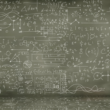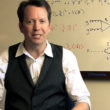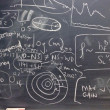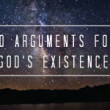Why an Infinite Regress Among Proper Causes is Metaphysically Impossible
by Dr. Dennis Bonnette
Filed under Philosophy

Presuppositions, definitions, and purpose: This article presupposes the metaphysical first principles of non-contradiction, sufficient reason, and causality, which I defended earlier in a Strange Notions article. By the principle of sufficient reason, I mean that every being has a sufficient reason for its being or becoming. This principle is recognized by virtually all mankind as essential to reality’s intelligibility. By causality, I mean that every effect (a being whose sufficient... Read More
What Is the True Understanding of Causality?
by Dr. Dennis Bonnette
Filed under Philosophy

The classical proofs for God’s existence, particularly St. Thomas Aquinas’ Five Ways, employ the notion of causality – both efficient and final. In that context, many misunderstandings arise concerning the true metaphysical meaning of the principle of causality. This article will assume the validity of the metaphysical first principles of non-contradiction and sufficient reason, which were established as true in my previous Strange Notions article on the first principles – and... Read More
Are Metaphysical First Principles Universally True?
by Dr. Dennis Bonnette
Filed under Philosophy, The Existence of God

Today, certain lines of attack against classical proofs for God’s existence, such as St. Thomas Aquinas’ Five Ways, seek to undermine foundational metaphysical first principles such as causality, sufficient reason, or even non-contradiction.1 Such attacks employ, for example, claims that (1) David Hume’s critique of causality is definitive, (2) the existence of the cosmos is simply a “brute fact,” needing no explanation, and (3) modern physics shows that the principle of non-contradiction... Read More
Is the Passage of Time Real or Just an Illusion?
by Brandon Vogt
Filed under Christianity and Science, Cosmology

One of the main targets of Sean Carroll's new book, The Big Picture: On the Origins of Life, Meaning, and the Universe Itself (Dutton, 2016), is causality. Like many naturalists, he sees where the causal chain leads—a series of contingent causes demands a necessary First Cause. So if you want to avoid a First Cause, you must get rid of causality. As discussed in an earlier post, Carroll's first attempt appealed to the conservation of momentum. It wasn't clear how that principle... Read More
Is Sean Carroll Correct That the Universe Moves By Itself?
by Brandon Vogt
Filed under Atheism, Christianity and Science, Cosmology

Many theists, including myself, believe that some of the strongest arguments for God rely on the logical need for a First Cause of the universe (or First Mover, depending on which argument you use.) This sort of argument goes back at least to Aristotle, who thousands of years ago suggested that, "Everything that is in motion must be moved by something" (and by motion he meant any change whatsoever, not just locomotion, or spatial change). However, physicist Sean Carroll thinks Aristotle... Read More
Causality and Radioactive Decay
by Dr. Edward Feser
Filed under Science

NOTE: Today we finish our two part series by Dr. Edward Feser exploring questions about science, philosophy, causality, and radioactive decay. You can read the first part here. Now, if there must be causality at the macro level (at the very least in the case of the causal relations between the external world and our perceptual experiences of it), and this causality is not captured in the description of the world that physics itself gives us, then it follows that there... Read More
Fads and Fallacies in the Name of Science
by Dr. Edward Feser
Filed under Science

NOTE: Today we begin a two part series by Dr. Edward Feser exploring questions about science, philosophy, causality, and radioactive decay. We'll share the second part on Wednesday. At the Catholic blog Vox Nova, mathematics professor David Cruz-Uribe writes: "I… am currently working through the metaphysics of St. Thomas Aquinas as part of his proofs of the existence of God… [S]ome possibly naive counter-examples from quantum mechanics come to mind. For instance,... Read More
The Efficient Causality Argument for God
by Dr. Peter Kreeft
Filed under The Existence of God

All people notice that some things cause other things to be (to begin to be, to continue to be, or both). For example, a man playing the piano is causing the music that we hear. If he stops, so does the music. Now ask yourself: Are all things caused to exist by other things right now? Suppose they are. That is, suppose there is no Uncaused Being, no God. Then nothing could exist right now. For remember, on the no-God hypothesis, all things need a present cause outside of themselves in... Read More
20 Arguments For God’s Existence
by Dr. Peter Kreeft
Filed under The Existence of God

1. The Argument from Change 2. The Argument from Efficient Causality 3. The Argument from Time and Contingency 4. The Argument from Degrees of Perfection 5. The Design Argument 6. The Kalam Argument 7. The Argument from Contingency 8. The Argument from the World as an Interacting Whole 9. The Argument from Miracles 10. The Argument from Consciousness 11. The Argument from Truth 12. The Argument from the Origin of the Idea of God 13. The Ontological Argument 14. The Moral Argument 15. The... Read More






